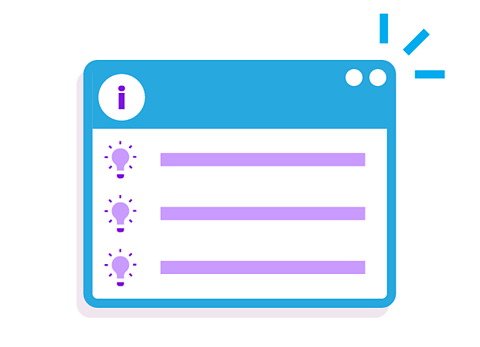Key points about disjunctive pronouns in Spanish

- This guide covers High Tier content only.
- disjunctive pronounA pronoun that is used independently of the verb. Disjunctive pronouns follow prepositions or show emphasis. are used after prepositionA word such as at, for, with, into or from which is usually followed by a noun or pronoun. Prepositions are used to show where something is in place or time..
- Disjunctive pronouns can also be used for emphasis.
- There are special forms to say with me, conmigo and with you, contigo.
What are disjunctive pronouns?
Disjunctive pronouns can also be used for emphasis. They do not change the translation of the sentence but they make it clear that the person absolutely likes, loves or dislikes something very much.
For example:
A nosotros, nos encantan las vacaciones. - We love holidays.
A ella, no le gusta el uniforme. - She doesn’t like the uniform.
A іѕГ, me gusta el vestido negro. - I like the black dress.
What are the disjunctive pronouns in Spanish?
Disjunctive pronouns in Spanish are as follows:
| Sorry, something went wrongCheck your connection, refresh the page and try again. | me |
| Sorry, something went wrongCheck your connection, refresh the page and try again. | you (singular - informal) |
| Sorry, something went wrongCheck your connection, refresh the page and try again. | him |
| Sorry, something went wrongCheck your connection, refresh the page and try again. | her |
| Sorry, something went wrongCheck your connection, refresh the page and try again. | you (singular - formal) |
| Sorry, something went wrongCheck your connection, refresh the page and try again./Sorry, something went wrongCheck your connection, refresh the page and try again. | us |
| Sorry, something went wrongCheck your connection, refresh the page and try again./Sorry, something went wrongCheck your connection, refresh the page and try again. | you (plural - informal) |
| Sorry, something went wrongCheck your connection, refresh the page and try again. | them (all male or a mixed group) |
| Sorry, something went wrongCheck your connection, refresh the page and try again. | them (all female) |
| Sorry, something went wrongCheck your connection, refresh the page and try again. | you (plural - formal) |
Using disjunctive pronouns after prepositions
Disjunctive pronouns (also known as stressed pronouns) can be used after prepositions.
Prepositions in English are words such as with, from, for and of.
For example:
Para іѕГ, lo mГЎs importante es… - For me, the most important thing is…
In this sentence para is the preposition, meaning for.
Voy a Francia con ellos. - I’m going to France with them.
In this sentence con is the preposition, meaning with.
Para іЩГ no es tan importante. - For you it’s not so important.
In this sentence para is the preposition, meaning for.
'Conmigo' (with me) and 'contigo' (with you)
The special form conmigo is used for with me and contigo for with you (іЩГє).
For example:
Mis amigos vienen conmigo. - My friends are coming with me.
ВїPuedo ir contigo? - Can I go with you?
Quiz - Disjunctive pronouns
Practise what you've learned about disjunctive pronouns in Spanish with this quiz.
Now you have learned about disjunctive pronouns in Spanish why not explore indefinite pronouns?
More on Pronouns
Find out more by working through a topic
- count6 of 9

- count7 of 9

- count8 of 9

- count9 of 9
